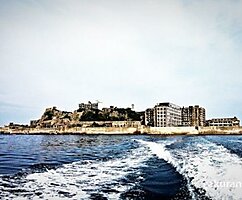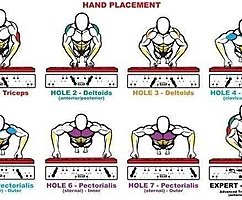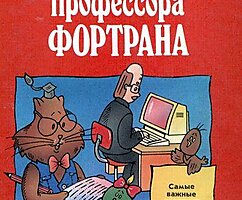9 ordinary things, which in any case can not be taken from space
 Bashny.Net
Bashny.Net
"Space from us far, only an hour away, if your machine is able to go up," - he said the British astronomer Fred Hoyle. So, you have such a machine. So you're in orbit. Now forget everything you took for granted in the world.
1. B>
But stop. Not in the open space, of course - to the ISS. In the vacuum of space without a suit, you will not last a couple of minutes. First your lungs and digestive tract fill the expanding gases (due to the fact that no external pressure space) inside the body. From this light burst, the water on the mucous membranes of the eyes, mouth and nose quickly boil and evaporate, and the gas bubbles get into the bloodstream. Solar radiation would leave burns on the skin. And here it is banal and set himself choking. And then boiling blood ... Well, okay, you're on the ISS. All is well. But there is a lot of their "no". Besides the obvious - walking, standing, lying down - in space can not be ...
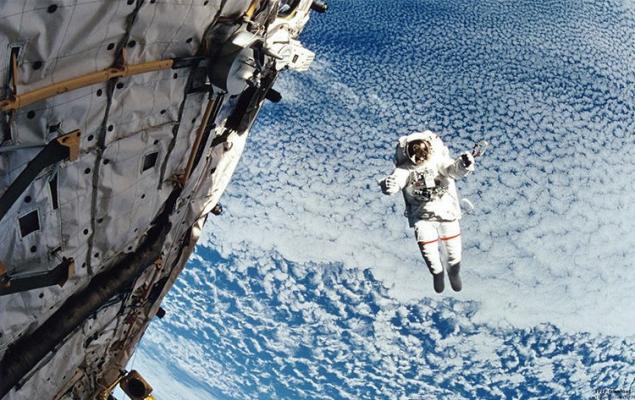
2. See the twinkling of stars
Everything is simple. In the words of the "universal man" by Leonardo da Vinci, "the blue of the sky is due to the thickness of the illuminated particles of air, which is located between the Earth and located at the top of blackness." For the same reason, the space does not twinkle stars. Because of the "thickness of the air particles," I mean the atmosphere. See the stars through it - about the same as what to look across the water. The water is moving, so the stars begin to "shake". But in our atmosphere air - in a continuous motion, but also of different density, and have no air space. And no, no flicker.
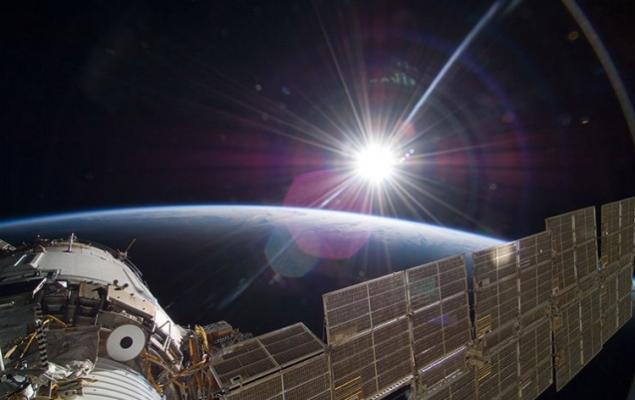
3. Writing ballpoint pen
Have you ever wondered why the pen stops writing on the wall or ceiling? It is clear - because of the fact that the ink does not come to a tiny ball at the end of the rod. Ordinary pens need the force of gravity, which will "push" the ink to the bottom of the handle and you can write. But what is written in orbit? Soviet cosmonauts wrote wax pencils (graphite rods can break off and become a threat to equipment and people's respiratory systems). American astronauts used the markers.
There is a famous legend that NASA has allocated $ 1 million to create a pen that could write in the absence of gravity. It is not true. "The handle weightlessness" or Space Pen, was actually designed (and now widely used on the ISS), but NASA and the American inventor and entrepreneur Paul Fischer. And to create it really gone over $ 1 million, but because of personal funds of a businessman. Ink in the "space arm" are a special cartridge under the pressure of compressed nitrogen. And can write, according to the developers, not only in weightlessness, but also under water, in wet and greasy paper, at any angle and at extreme temperatures. The price of this handle for the program "Apollo" (the same as the Americans went to the moon) was $ 6.
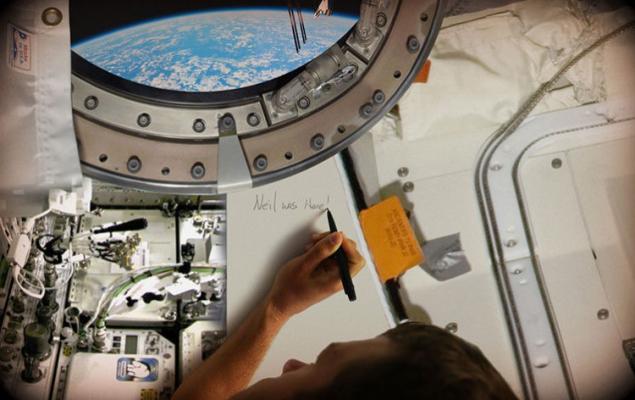
4. Boil Kettle
The "earth" sense of the word. Let us remember high-school physics. The higher we climb, the lower the boiling point of water. It's all about the atmosphere pressure. On top of the mountain, it will be less than at its foot. Therefore, in the absence of pressure in the space, the water boils almost instantly (and only then freeze pieces of its vapor, as space is very cold). But on the ISS pressure (and temperature, of course) to create an artificial (the astronauts would simply have died without it), though not the same as on Earth, but to boil water when it is still possible. It boils at 85 ° C. But not all.
The boiling is not only the pressure but also convection - simply mixing the liquid with heating (due to gravity). On the ISS there is no convection (including air convection, so powerful fans are working there; otherwise, the astronauts would have to breathe in the air, which has just exhaled, and would soon simply suffocated), so the water in zero gravity begins to boil only in the place heating, and the rest remains cold. Therefore, the ISS is a special "smart" kettle. The most expensive in the world.
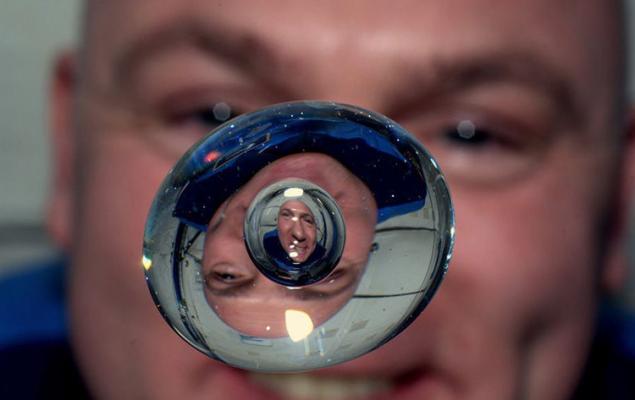
5. Find out the exact time
According to Einstein's theory of relativity. Do not be alarmed. It's simple. In orbit no gravity (or rather, it is, but very small - a complete lack of attractive forces is possible only in the distant space, where there are no major nearby planets and stars). But she ISS orbits the Earth at a breakneck pace - 7, 9 km / s. And on the basis of the theory of relativity, gravity and high-speed change over time, slowing it down. Delve is not necessary. Just accept as fact - time to the ISS on Earth flows differently. On Earth, faster, slower than the ISS. In fractions of a second. What nonsense? If the astronaut spent a couple of months orbit. But when he returned from a journey to another star, you will not find on Earth, even their great-grandchildren - by the time they are going to die
.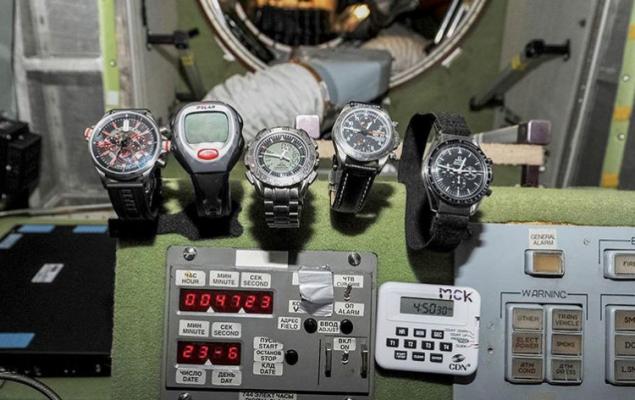
6. Scented perfume
ISS is simply forbidden to take them. And that's why. In space varies sense of smell and taste. Optionally greatly, and all different. But mostly toward a freshwater sharper taste and smell. That is, the soup will be some unsalted and smell the roses some very sharp. In the first place, because in conditions of weightlessness in the upper part of the body accumulates more blood than it does on Earth. Because of this, the olfactory and gustatory receptors give the "failure". Taste - weaker, so the ISS deliver any set of hot sauces and condiments. Olfactory - on the contrary. So, no perfumes and colognes.
By the way, the fragrance has the cosmos itself. Despite its full vacuum, in which, as is known, do not extend smells (but not far vacuum is empty, a certain number of atoms in the still is). They say it is similar to the smell of fried steak is not something, not welding. A moon smells like gunpowder smoke.
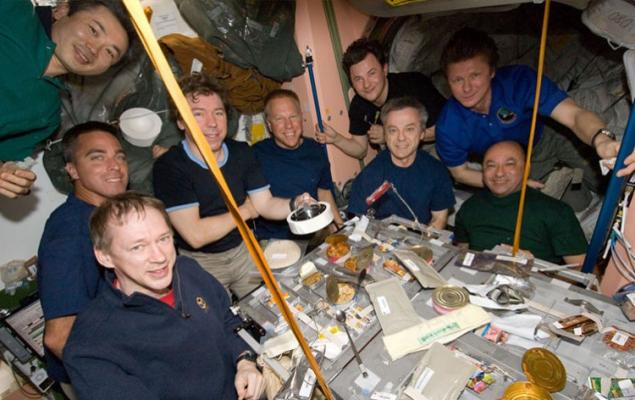
7. Throw Sport
No stress - muscle atrophy. For the full program. Our body is lazy, it very quickly gets used to the state of weightlessness to the fact that all the "easy and simple". Do not bother to go: swim myself among the countless wires and buttons. Therefore, at the time after returning to the "vale of tears" astronauts some time could not even walk - their muscles were so relaxed. Today, in their mode - and the daily obligatory exercise. Still, after the flight they feel is not a cucumber.
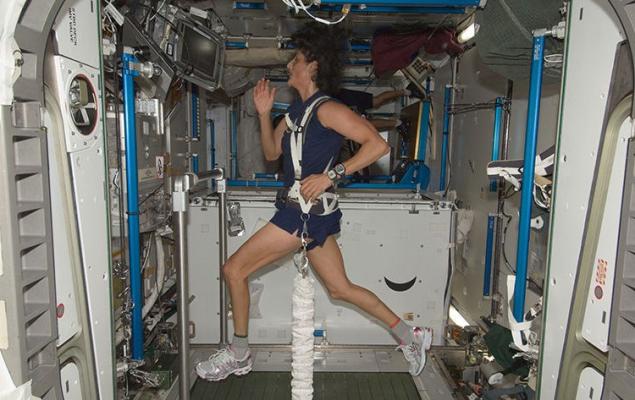
8. Sneeze
Of course, possible. But other consequences. More serious than on Earth. If strong sneeze in weightlessness - jet effect is created, which will spin and then the person is a risk to get on the back of the head, "wall", "ceiling" or "floor" (none of these concepts to the ISS, of course not)
. By the way, for the same reason, we do not recommend you to shoot in space (not on the ISS, where it will first and foremost to the depressurization of the station, and in a vacuum). Remember Newton's third law. The force acting on the bullet will be equally counter-force to the gun, which is in your hands. So, on you. But in space there is almost no atoms, constraining your movement in the opposite direction. So get ready, that you bear in this very direction. Though at a rate much slower than the bullet (after all, you weigh a lot more). And yes, the bullet will go on forever. And you too. Because, as an astronomer Matija Cook said: "The universe is expanding faster than a bullet»
.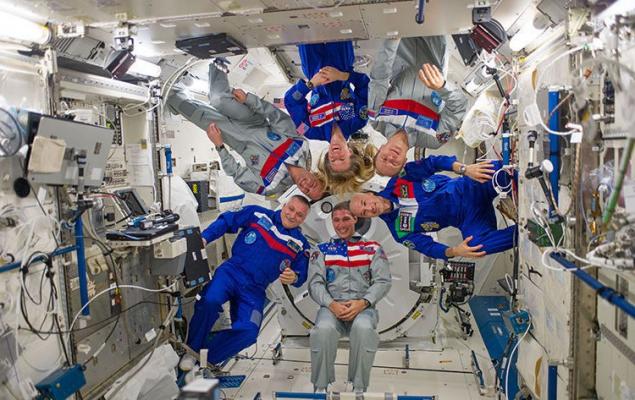
9. For a long time looking at the flames
Ignite, for example, match the ISS can be (unless you consider a ban on the "smuggling" of such things). But burning it will be different. In weightlessness, the hot air does not tend upward, so the flame of a match will not be extended, as on Earth, and rounded as swimming cap. And because of the lack of gravity will not occur the processes of transition of combustion particles from regions of high temperature to areas with lower, so the match goes out quickly.
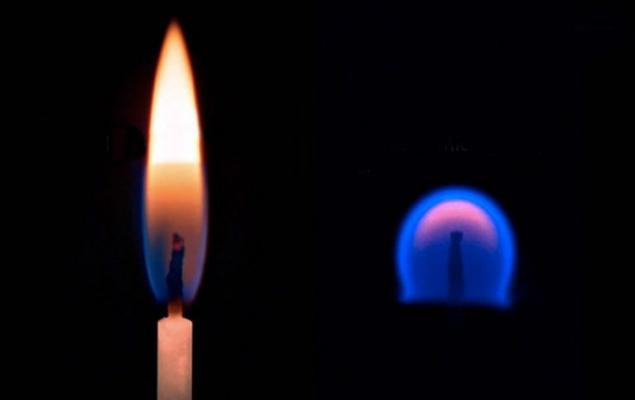
Istochik
Loading ... Loading ...
Liked? Share with your friends!
Loading ... Loading ...
1. B>
But stop. Not in the open space, of course - to the ISS. In the vacuum of space without a suit, you will not last a couple of minutes. First your lungs and digestive tract fill the expanding gases (due to the fact that no external pressure space) inside the body. From this light burst, the water on the mucous membranes of the eyes, mouth and nose quickly boil and evaporate, and the gas bubbles get into the bloodstream. Solar radiation would leave burns on the skin. And here it is banal and set himself choking. And then boiling blood ... Well, okay, you're on the ISS. All is well. But there is a lot of their "no". Besides the obvious - walking, standing, lying down - in space can not be ...

2. See the twinkling of stars
Everything is simple. In the words of the "universal man" by Leonardo da Vinci, "the blue of the sky is due to the thickness of the illuminated particles of air, which is located between the Earth and located at the top of blackness." For the same reason, the space does not twinkle stars. Because of the "thickness of the air particles," I mean the atmosphere. See the stars through it - about the same as what to look across the water. The water is moving, so the stars begin to "shake". But in our atmosphere air - in a continuous motion, but also of different density, and have no air space. And no, no flicker.

3. Writing ballpoint pen
Have you ever wondered why the pen stops writing on the wall or ceiling? It is clear - because of the fact that the ink does not come to a tiny ball at the end of the rod. Ordinary pens need the force of gravity, which will "push" the ink to the bottom of the handle and you can write. But what is written in orbit? Soviet cosmonauts wrote wax pencils (graphite rods can break off and become a threat to equipment and people's respiratory systems). American astronauts used the markers.
There is a famous legend that NASA has allocated $ 1 million to create a pen that could write in the absence of gravity. It is not true. "The handle weightlessness" or Space Pen, was actually designed (and now widely used on the ISS), but NASA and the American inventor and entrepreneur Paul Fischer. And to create it really gone over $ 1 million, but because of personal funds of a businessman. Ink in the "space arm" are a special cartridge under the pressure of compressed nitrogen. And can write, according to the developers, not only in weightlessness, but also under water, in wet and greasy paper, at any angle and at extreme temperatures. The price of this handle for the program "Apollo" (the same as the Americans went to the moon) was $ 6.

4. Boil Kettle
The "earth" sense of the word. Let us remember high-school physics. The higher we climb, the lower the boiling point of water. It's all about the atmosphere pressure. On top of the mountain, it will be less than at its foot. Therefore, in the absence of pressure in the space, the water boils almost instantly (and only then freeze pieces of its vapor, as space is very cold). But on the ISS pressure (and temperature, of course) to create an artificial (the astronauts would simply have died without it), though not the same as on Earth, but to boil water when it is still possible. It boils at 85 ° C. But not all.
The boiling is not only the pressure but also convection - simply mixing the liquid with heating (due to gravity). On the ISS there is no convection (including air convection, so powerful fans are working there; otherwise, the astronauts would have to breathe in the air, which has just exhaled, and would soon simply suffocated), so the water in zero gravity begins to boil only in the place heating, and the rest remains cold. Therefore, the ISS is a special "smart" kettle. The most expensive in the world.

5. Find out the exact time
According to Einstein's theory of relativity. Do not be alarmed. It's simple. In orbit no gravity (or rather, it is, but very small - a complete lack of attractive forces is possible only in the distant space, where there are no major nearby planets and stars). But she ISS orbits the Earth at a breakneck pace - 7, 9 km / s. And on the basis of the theory of relativity, gravity and high-speed change over time, slowing it down. Delve is not necessary. Just accept as fact - time to the ISS on Earth flows differently. On Earth, faster, slower than the ISS. In fractions of a second. What nonsense? If the astronaut spent a couple of months orbit. But when he returned from a journey to another star, you will not find on Earth, even their great-grandchildren - by the time they are going to die
.

6. Scented perfume
ISS is simply forbidden to take them. And that's why. In space varies sense of smell and taste. Optionally greatly, and all different. But mostly toward a freshwater sharper taste and smell. That is, the soup will be some unsalted and smell the roses some very sharp. In the first place, because in conditions of weightlessness in the upper part of the body accumulates more blood than it does on Earth. Because of this, the olfactory and gustatory receptors give the "failure". Taste - weaker, so the ISS deliver any set of hot sauces and condiments. Olfactory - on the contrary. So, no perfumes and colognes.
By the way, the fragrance has the cosmos itself. Despite its full vacuum, in which, as is known, do not extend smells (but not far vacuum is empty, a certain number of atoms in the still is). They say it is similar to the smell of fried steak is not something, not welding. A moon smells like gunpowder smoke.

7. Throw Sport
No stress - muscle atrophy. For the full program. Our body is lazy, it very quickly gets used to the state of weightlessness to the fact that all the "easy and simple". Do not bother to go: swim myself among the countless wires and buttons. Therefore, at the time after returning to the "vale of tears" astronauts some time could not even walk - their muscles were so relaxed. Today, in their mode - and the daily obligatory exercise. Still, after the flight they feel is not a cucumber.

8. Sneeze
Of course, possible. But other consequences. More serious than on Earth. If strong sneeze in weightlessness - jet effect is created, which will spin and then the person is a risk to get on the back of the head, "wall", "ceiling" or "floor" (none of these concepts to the ISS, of course not)
. By the way, for the same reason, we do not recommend you to shoot in space (not on the ISS, where it will first and foremost to the depressurization of the station, and in a vacuum). Remember Newton's third law. The force acting on the bullet will be equally counter-force to the gun, which is in your hands. So, on you. But in space there is almost no atoms, constraining your movement in the opposite direction. So get ready, that you bear in this very direction. Though at a rate much slower than the bullet (after all, you weigh a lot more). And yes, the bullet will go on forever. And you too. Because, as an astronomer Matija Cook said: "The universe is expanding faster than a bullet»
.

9. For a long time looking at the flames
Ignite, for example, match the ISS can be (unless you consider a ban on the "smuggling" of such things). But burning it will be different. In weightlessness, the hot air does not tend upward, so the flame of a match will not be extended, as on Earth, and rounded as swimming cap. And because of the lack of gravity will not occur the processes of transition of combustion particles from regions of high temperature to areas with lower, so the match goes out quickly.

Istochik
Loading ... Loading ...
Liked? Share with your friends!
Loading ... Loading ...
Tags
See also
20 completely normal things that cause you discomfort. And we should not have been ...
Phrases that in any case the child can not speak!
That which in any case can not be done with chickenpox! We risk the health of children.
7 products, which in any case should be applied to the skin
During menstruation in any case, you cannot do these couple of things. You will be surprised!
"The little Prince" about a Small Church
Things animals do as well as people





